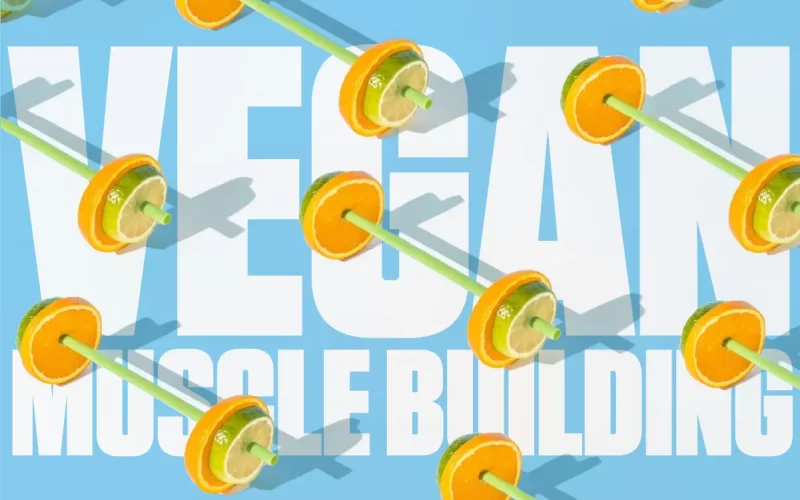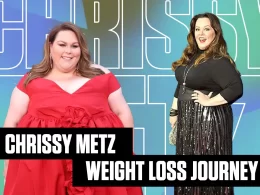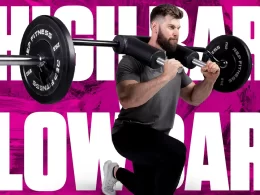Table of Contents Show
If you’re a vegan who wants to build muscle, you might have heard some myths and misconceptions about veganism and muscle growth. Some people might tell you that it’s impossible to gain muscle without eating animal products, or that you need to consume vast amounts of protein and supplements to see any results.
But the truth is, you can build muscle on a vegan bodybuilding diet, and you don’t need to compromise your health, ethics, or budget to do so. In fact, a vegan diet can offer many benefits for muscle building, such as lower inflammation, faster recovery, and better digestion.
In this article, we’ll show you how to create a vegan muscle building diet plan that works for you. We’ll cover the basics of vegan nutrition, the best plant-based protein sources, how to calculate your calorie and macronutrient needs, and how to plan your meals and snacks. We’ll also answer some frequently asked questions about vegan bodybuilding and provide a sample 5-day meal plan to get you started.
What is a vegan muscle building diet plan?
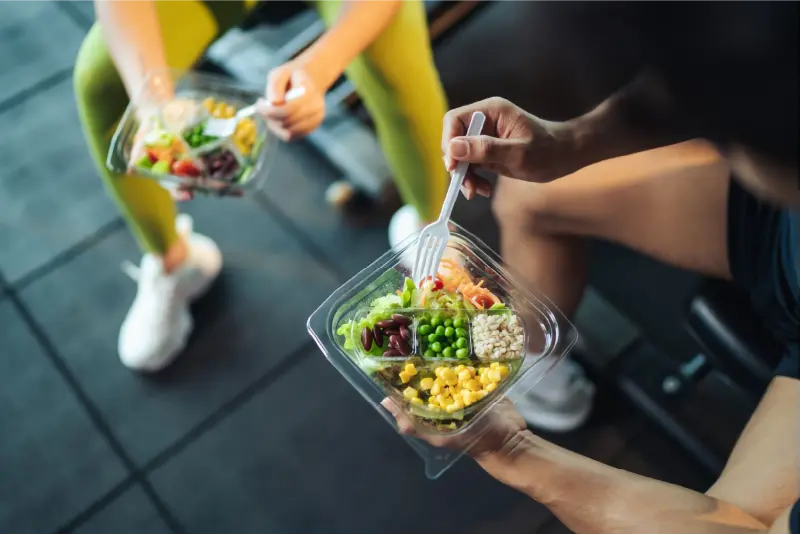

A vegan muscle building diet plan is a diet that excludes all animal products and focuses on plant-based foods that support muscle growth and maintenance. A vegan muscle building diet plan is usually higher in protein than a typical vegan diet, as protein is essential for building and repairing muscle tissue.
A vegan muscle building diet plan also takes into account other factors that affect muscle growth, such as calorie intake, carbohydrate intake, fat intake, micronutrient intake, meal timing, and supplementation. A vegan muscle building diet plan aims to provide enough calories and nutrients to fuel your workouts, stimulate muscle protein synthesis, and prevent muscle breakdown.
Why choose a vegan muscle building diet plan?
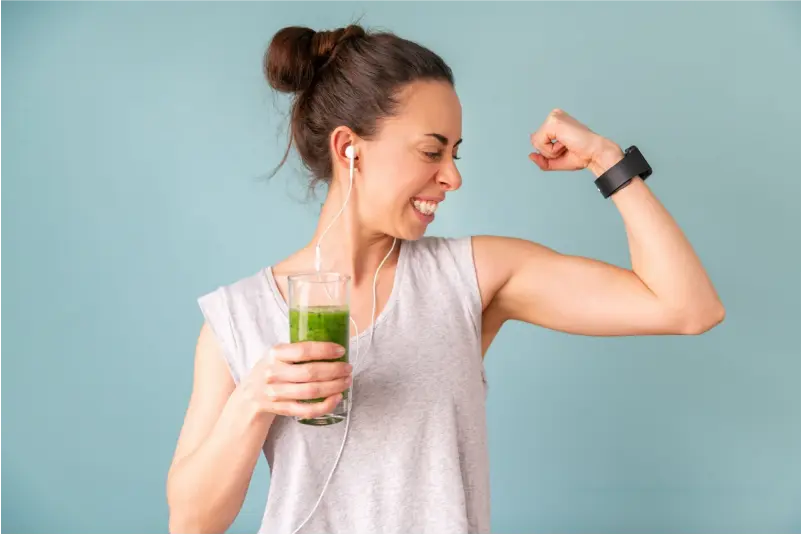

There are many reasons why someone might choose a vegan muscle building diet plan over a non-vegan one. Some of the most common ones are:
- Ethical reasons: Some people choose a vegan diet because they want to avoid harming animals or contributing to animal exploitation and suffering.
- Environmental reasons: Some people choose a vegan diet because they want to reduce their environmental impact and carbon footprint. Animal agriculture is one of the leading causes of greenhouse gas emissions, deforestation, water pollution, and biodiversity loss.
- Health reasons: Some people choose a vegan diet because they want to improve their health and prevent chronic diseases. A vegan diet can lower the risk of heart disease, diabetes, obesity, cancer, and hypertension. A vegan diet can also improve blood pressure, cholesterol levels, blood sugar levels, and inflammation markers.
- Performance reasons: Some people choose a vegan diet because they want to enhance their athletic performance and recovery. A vegan diet can provide more antioxidants, phytochemicals, fiber, and water than an animal-based diet. These nutrients can help reduce oxidative stress, inflammation, soreness, and fatigue.
How much protein do you need on a vegan bodybuilder diet?
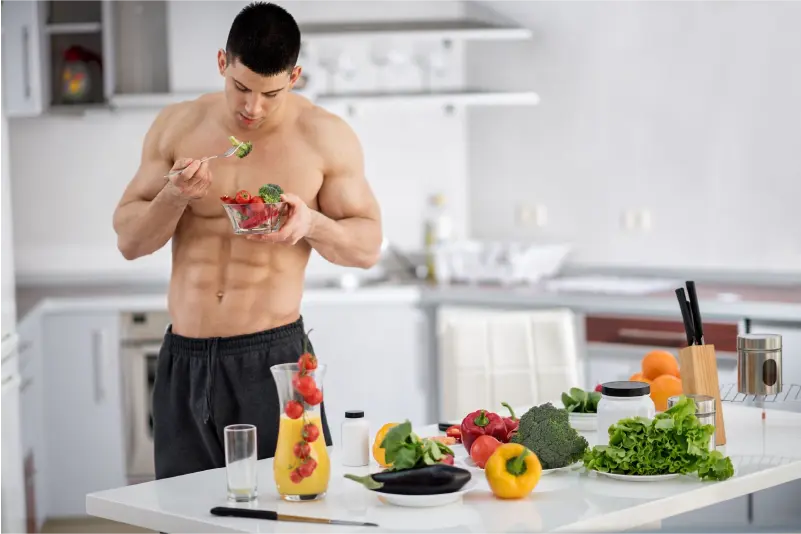

Protein is the most important macronutrient for muscle building. Protein provides the amino acids that are the building blocks of muscle tissue. Protein also helps regulate hormones, enzymes, immune cells, and neurotransmitters that affect muscle growth.
The amount of protein you need on a vegan muscle building diet plan depends on several factors, such as your body weight, body composition, training intensity, training frequency, training duration, training experience, and personal goals.
As a general rule of thumb, most experts recommend consuming 0.7–1.0 grams of protein per pound (1.6–2.2 grams per kg) of body weight per day for optimal muscle growth (1). This means that if you weigh 150 pounds (68 kg), you should aim for 105–150 grams of protein per day.
However, this is not a fixed number and may vary depending on your individual needs and preferences. Some people may need more or less protein depending on their metabolism, genetics, activity level, age, gender, and health status.
To find out your exact protein needs, you can use an online calculator or consult with a registered dietitian or nutritionist.
What are the best plant-based protein sources for a vegan bodybuilding meal plan?
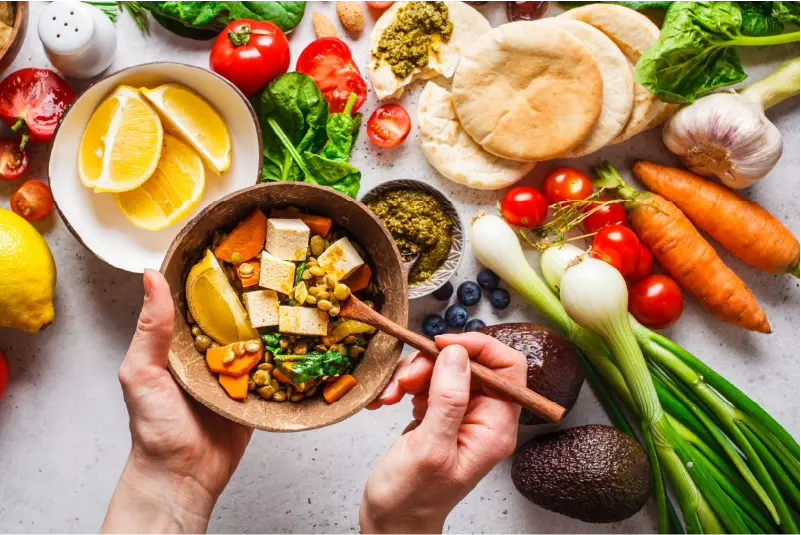

One of the challenges of following a vegan muscle building diet plan is finding plant-based protein sources that are high in quality and quantity. Quality refers to the amino acid profile of the protein source, while quantity refers to the amount of protein per serving.
Animal proteins are considered high-quality proteins because they contain all nine essential amino acids (EAAs) that your body cannot produce on its own. Plant proteins are usually lower in quality because they lack or have low amounts of one or more EAAs.
However, this does not mean that plant proteins are inferior or inadequate for muscle building. You can still get all the EAAs you need from plant sources by eating a variety of foods throughout the day or by combining complementary proteins that make up for each other’s shortcomings.
For example, you can combine grains with legumes (e.g., rice and beans, quinoa and lentils, bread and hummus) or nuts and seeds with legumes (e.g., peanut butter and tofu, almond butter and chickpeas, hemp seeds and edamame) to get a complete protein.
Some plant-based protein sources are also higher in quality and quantity than others. Here are some of the best ones for a vegan muscle building diet plan:
- Soy: Soy is one of the few plant proteins that contains all nine EAAs. It is also high in protein, with about 10 grams per 1/2 cup (85 grams) of tofu, 15 grams per 1/2 cup (85 grams) of tempeh, and 29 grams per cup (240 ml) of soy milk. Soy is also rich in phytoestrogens, which may have beneficial effects on hormone balance, bone health, and cholesterol levels (2).
- Seitan: Seitan is a meat substitute made from wheat gluten. It is very high in protein, with about 25 grams per 3.5 ounces (100 grams). Seitan is also low in fat and carbs, making it a great choice for cutting or bulking phases. However, seitan is not a complete protein and should be paired with other plant sources to get all the EAAs. Seitan is also not suitable for people with gluten intolerance or celiac disease.
- Quinoa: Quinoa is a pseudocereal that is high in protein, with about 8 grams per cup (185 grams) of cooked quinoa. Quinoa is also a complete protein and contains other nutrients, such as fiber, iron, magnesium, manganese, and phosphorus. Quinoa is versatile and can be used as a base for salads, bowls, or stir-fries.
- Hemp seeds: Hemp seeds are seeds that are high in protein, with about 10 grams per ounce (28 grams). Hemp seeds are also a complete protein and contain other nutrients, such as omega-3 fatty acids, fiber, iron, zinc, and magnesium. Hemp seeds have a nutty flavor and can be sprinkled on salads, smoothies, oatmeal, or yogurt.
- Peas: Peas are legumes that are high in protein, with about 9 grams per cup (160 grams) of cooked peas. Peas are also high in fiber, vitamin C, vitamin K, folate, and manganese. Peas can be eaten as a side dish or added to soups, stews, curries, or salads.
- Beans: Beans are legumes that are high in protein, with about 15 grams per cup (172 grams) of cooked beans. Beans are also high in fiber, iron, folate, potassium, and antioxidants. Beans come in many varieties, such as black beans, kidney beans, pinto beans, and chickpeas, and can be used to make dishes like burritos, burgers, hummus, or falafel.
Other plant-based protein sources include lentils, nuts, nut butters, seeds, seed butters, edamame, spirulina, chia seeds, flax seeds, oats, rice, pasta, bread, and protein powders.
How to calculate your calorie and macronutrient needs for a vegan bodybuilding diet?


Another challenge of following a vegan muscle building diet plan is finding the right balance of calories and macronutrients (protein, carbs, and fat) for your goals.
Calories are the units of energy that your body uses to perform its functions and activities. To build muscle, you need to consume more calories than you burn. This creates a calorie surplus that allows your body to use the excess energy to synthesize new muscle tissue.
Macronutrients are the nutrients that provide calories and have different roles and effects on your body. Protein provides 4 calories per gram and is essential for muscle growth and repair. Carbs provide 4 calories per gram and are the main source of fuel for your muscles and brain. Fat provides 9 calories per gram and is important for hormone production, cell membrane function, and nutrient absorption.
The amount of calories and macronutrients you need on a vegan muscle building diet plan depends on several factors, such as your body weight, body composition, activity level, age, gender, and personal goals.
As a general rule of thumb, most experts recommend consuming 10–20% more calories than you burn to gain muscle mass (1). This means that if you burn 2,000 calories per day, you should aim for 2,200–2, 400 calories per day.
Most experts recommend consuming 0.7–1.0 grams of protein per pound (1.6–2.2 grams per kg) of body weight per day for optimal muscle growth (1). This means that if you weigh 150 pounds (68 kg), you should aim for 105–150 grams of protein per day.
Most experts recommend consuming 2–3 grams of carbs per pound (4.4–6.6 grams per kg) of body weight per day for optimal muscle performance and recovery (1). This means that if you weigh 150 pounds (68 kg), you should aim for 300–450 grams of carbs per day.
Most experts recommend consuming 0.3–0.5 grams of fat per pound (0.7–1.1 grams per kg) of body weight per day for optimal hormone function and health (1). This means that if you weigh 150 pounds (68 kg), you should aim for 45–75 grams of fat per day.
However, these are not fixed numbers and may vary depending on your individual needs and preferences. Some people may need more or less calories or macronutrients depending on their metabolism, genetics, activity level, age, gender, and health status.
To find out your exact calorie and macronutrient needs, you can use an online calculator or consult with a registered dietitian or nutritionist.
How to plan your meals and snacks for a vegan muscle building diet plan?
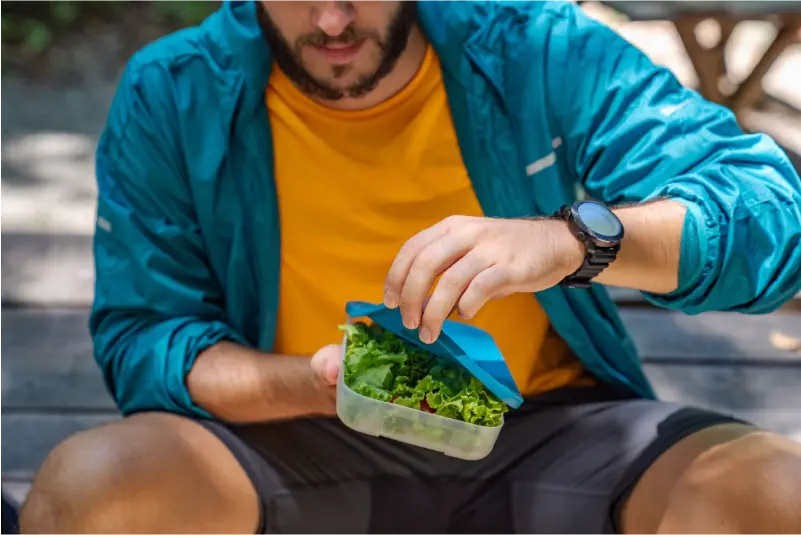

Once you know your calorie and macronutrient needs, you can start planning your meals and snacks for a vegan muscle building diet plan. Here are some tips to help you create a balanced and satisfying meal plan:
- Aim for 3–5 meals and 1–3 snacks per day, depending on your appetite and schedule.
- Try to eat every 3–4 hours to keep your blood sugar levels stable and your metabolism active.
- Include a source of protein, carbs, and fat in every meal and snack to provide a balanced mix of nutrients and energy.
- Choose whole, unprocessed, or minimally processed foods as much as possible to get more fiber, vitamins, minerals, antioxidants, and phytochemicals.
- Vary your food choices to get a wide range of nutrients and flavors.
- Drink plenty of water to stay hydrated and support your digestion and metabolism.
- Adjust your portions and servings according to your goals and progress. If you want to gain more muscle, increase your calorie intake. If you want to lose fat, decrease your calorie intake.
- Track your food intake using an app or a journal to monitor your calories and macronutrients. This can help you stay on track and make adjustments as needed.
Here is a sample 5-day meal plan for a vegan muscle building diet plan based on a 2,500-calorie intake with 150 grams of protein, 375 grams of carbs, and 69 grams of fat per day:
Day 1
Breakfast:
Tofu scramble with spinach, mushrooms, tomatoes, and avocado on whole-wheat toast. A glass of soy milk.
Snack:
A banana with peanut butter.
Lunch:
Quinoa salad with black beans, corn, cherry tomatoes, cilantro, lime juice, and olive oil. A cup of almond milk.
Snack:
A handful of almonds and dried cranberries.
Dinner:
Seitan stir-fry with broccoli, carrots, bell peppers, onion, garlic, ginger, soy sauce, sesame oil, and brown rice. A cup of green tea.
Day 2
Breakfast:
Oatmeal with hemp seeds, chia seeds, flax seeds, cinnamon, maple syrup, and almond butter. A cup of oat milk.
Snack:
A protein bar.
Lunch:
Lentil soup with kale, carrots, celery, onion, garlic, thyme, and vegetable broth. A slice of whole-wheat bread with vegan butter. A cup of soy milk.
Snack:
A green smoothie with spinach, banana, pineapple, hemp protein powder, and coconut water.
Dinner:
Veggie burger with lettuce, tomato, onion, vegan cheese, and vegan mayo on a whole-wheat bun. Oven-baked fries with ketchup. A glass of lemonade.
Day 3
Breakfast:
Vegan pancakes with blueberries, walnuts, and maple syrup. A glass of almond milk.
Snack:
An apple with almond butter.
Lunch:
Chickpea curry with coconut milk, tomato paste, onion, garlic, ginger, curry powder, turmeric, cumin, coriander, salt, and cilantro. Basmati rice. A cup of green tea.
Snack:
A handful of pistachios and dried apricots.
Dinner:
Spaghetti with vegan meatballs made from lentils, oats, flax seeds, onion, garlic, soy sauce, and breadcrumbs. Tomato sauce with basil and oregano. Vegan parmesan cheese. A glass of red wine.
Day 4
Breakfast:
Tofu and vegetable frittata with spinach, mushrooms, bell peppers, onion, garlic, nutritional yeast, turmeric, salt, and black pepper. A slice of whole-wheat bread with vegan cream cheese. A cup of coffee with soy creamer.
Snack:
A bowl of mixed berries with coconut yogurt.
Lunch:
Hummus and veggie wrap with whole-wheat tortilla, hummus, lettuce, tomato, cucumber, carrot, olives, and tahini sauce. A side of pita chips and salsa. A glass of orange juice.
Snack:
A chocolate chip cookie with a glass of soy milk.
Dinner:
Tofu and vegetable stir-fry with broccoli, cauliflower, zucchini, onion, garlic, ginger, soy sauce, rice vinegar, cornstarch, and sesame seeds. Brown rice. A cup of herbal tea.
Day 5
Breakfast:
Vegan yogurt parfait with coconut yogurt, granola, sliced strawberries, and chopped almonds. A cup of coffee with oat creamer.
Snack:
A handful of cashews and raisins.
Lunch:
Veggie and bean chili with kidney beans, black beans, pinto beans, corn, tomato sauce, onion, garlic, chili powder, cumin, paprika, salt, and pepper. Vegan sour cream and shredded vegan cheese. A slice of cornbread with vegan butter. A glass of water.
Snack:
A slice of vegan banana bread with a glass of almond milk.
Dinner:
Roasted vegetable and tofu bowl with tofu, sweet potato, Brussels sprouts, onion, garlic, olive oil, salt, pepper, rosemary, and thyme. Quinoa. Vegan ranch dressing. A glass of water.
FAQs on vegan bodybuilder diet
Here are some frequently asked questions about vegan muscle building diet plan:
Do I need to take supplements on a vegan muscle building diet plan?
While a well-planned vegan muscle building diet plan can provide most of the nutrients you need for optimal health and performance, there are some nutrients that may be harder to get from plant sources or may require higher doses for muscle building purposes.
Some of the supplements that you may want to consider taking on a vegan muscle building diet plan are:
- Vitamin B12:
Vitamin B12 is a water-soluble vitamin that is essential for the production of red blood cells, DNA, and nerve function. Vitamin B12 is only found naturally in animal products, so vegans need to get it from fortified foods or supplements. The recommended daily intake (RDI) of vitamin B12 for adults is 2.4 mcg per day (3). However, some experts suggest that vegans may need higher doses to prevent deficiency or optimize their levels (4). You can take a vitamin B12 supplement in the form of cyanocobalamin or methylcobalamin, either as a pill, a spray, or a sublingual tablet. - Creatine:
Creatine is a compound that is naturally produced in your body and stored in your muscles. Creatine helps provide energy for short-term, high-intensity exercises, such as lifting weights or sprinting. Creatine is also found in animal products, such as meat, fish, and eggs, but not in plant sources. Studies have shown that creatine supplementation can increase muscle mass, strength, and performance in both vegans and non-vegans (5). The most common form of creatine supplement is creatine monohydrate, which can be taken as a powder mixed with water or juice. The recommended dose of creatine is 3–5 grams per day after an initial loading phase of 20 grams per day for 5–7 days (6). - Protein powder:
Protein powder is a convenient and easy way to increase your protein intake on a vegan muscle building diet plan. Protein powder can help you meet your protein needs without adding too much calories or carbs to your diet. Protein powder can also help you recover faster from your workouts and prevent muscle breakdown. There are many types of vegan protein powders available on the market, such as soy protein, pea protein, rice protein, hemp protein, and blends of different plant proteins. You can choose the one that suits your taste, budget, and goals. You can use protein powder to make shakes, smoothies, or add it to your oatmeal, yogurt, or baked goods. - Other supplements:
Depending on your individual needs and preferences, you may also want to take other supplements on a vegan muscle building diet plan, such as omega-3 fatty acids, calcium, iron, zinc, vitamin D, and magnesium. However, before taking any supplement, you should consult with your doctor or a registered dietitian or nutritionist to make sure that it is safe and effective for you.
How do I avoid bloating and gas on a vegan muscle building diet plan?
Bloating and gas are common side effects of increasing your fiber intake on a vegan muscle building diet plan. Fiber is a type of carbohydrate that is not digested by your body but fermented by the bacteria in your gut. This process produces gas that can cause bloating, discomfort, and flatulence. However, bloating and gas are not harmful and usually subside over time as your body adapts to your new diet.
Here are some tips to help you reduce bloating and gas on a vegan bodybuilding diet:
- Increase your fiber intake gradually.
Don’t make sudden and drastic changes to your diet. Start by adding one or two servings of high-fiber foods per day and then increase the amount and variety over time. This will give your gut time to adjust and produce more enzymes and bacteria that can digest fiber more efficiently. - Drink plenty of water.
Water helps soften and move the fiber through your digestive tract and prevent constipation. Aim for at least 8 glasses of water per day or more if you exercise or sweat a lot. - Chew your food well.
Chewing your food thoroughly helps break down the fiber and release the gas before it reaches your stomach. This can also help you eat more slowly and mindfully, which can prevent overeating and indigestion. - Cook your beans and legumes properly.
Beans and legumes are some of the most nutritious and protein-rich plant foods, but they are also notorious for causing gas. To reduce their gas-producing effects, you should soak them overnight in water with a pinch of baking soda or vinegar, rinse them well, and cook them until they are soft and tender. You can also add spices, herbs, or seaweed to your beans and legumes to enhance their flavor and digestion. - Avoid or limit foods that cause gas for you.
Some foods may cause more gas for some people than others, depending on their individual sensitivity and gut flora. Some of the common culprits are cruciferous vegetables (such as broccoli, cauliflower, cabbage, and Brussels sprouts), onions, garlic, apples, pears, peaches, dried fruits, sugar alcohols (such as xylitol, sorbitol, and erythritol), and carbonated drinks. You can experiment with different foods and see how they affect you. You can also try taking digestive enzymes or probiotics to help you digest these foods better.
Can I eat junk food on a vegan muscle building diet plan?
While a vegan muscle building diet plan is generally healthier than a non-vegan one, it does not mean that you can eat whatever you want as long as it is vegan. Junk food is still junk food, whether it is animal-based or plant-based. Junk food is usually high in calories, fat, sugar, salt, and additives, but low in nutrients, fiber, and antioxidants. Eating too much junk food can lead to weight gain, inflammation, insulin resistance, and other health problems that can impair your muscle growth and performance.
Therefore, you should limit your intake of junk food on a vegan muscle building diet plan and focus on whole, unprocessed, or minimally processed foods that provide more quality calories and nutrients for your body. However, this does not mean that you have to deprive yourself of all the foods that you enjoy. You can still have an occasional treat or indulge in a cheat meal once in a while, as long as you keep it moderate and balanced. You can also look for healthier alternatives or make your own versions of your favorite junk foods using plant-based ingredients.
For example, you can make vegan pizza with whole-wheat crust, tomato sauce, vegan cheese, and veggies; vegan ice cream with frozen bananas, coconut milk, and cocoa powder; or vegan brownies with black beans, oat flour, and maple syrup.
These options can satisfy your cravings without sabotaging your goals.
